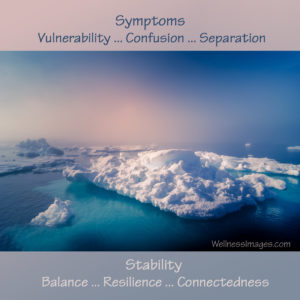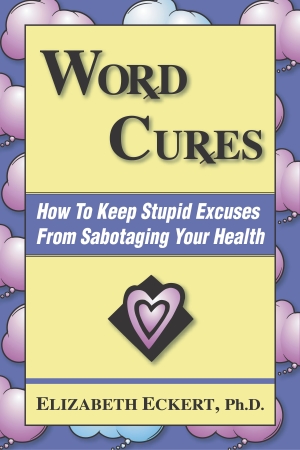“We investigate functional process. The systems that affect efficiency of your cells, tissues, and organ systems. How is stress affecting your body? Are you able to break down your food and use the nutrients? Does your particular mix of gut bacteria favor an efficient metabolism or a clear mind? How well does your body deliver nutrients to the cells and remove metabolic waste? How are you being affected by environmental toxins? Do we see any evidence that your immune system is challenged? And so on.” This is how I answer when people ask what a functional health practitioner does.

Visible symptoms
We’ll often use the image of an iceberg to describe how function relates to symptoms. On the surface, we notice problems: trouble sleeping, low energy, crummy mood, foggy thinking, sore back. The symptoms are often what gets our attention. But the symptoms are not the main problem.
How well does your body manage stress?
The issue is underneath. Below the surface — in the functional process. This is completely individualized. Two people can have a similar symptom — say, trouble sleeping through the night — for very different reasons. One may have sluggish circulation that causes their oxygen levels to drop; another may have trouble balancing their blood sugar. Someone else may have a disordered metabolic response to stress. A sleeping pill may knock them out for the night (their sleep will be non-restorative), but it won’t solve any one of the underlying issues. Which, if left unresolved, will lead to further trouble.
As another example, what role does your digestive system play in supporting your state of health? Are you able to break food down well to get the nutrients you need? Do you have the best mix of bacteria to keep your gut lining intact, maintain robust metabolism, protect you from anything unintended (toxins, opportunistic bacteria or other “bugs”) that comes in on your food, and keep inflammation levels down? Your circulatory system and immune system both depend on robust gut function in order to work well. Your brain and your gut communicate back and forth with one another — all day long. Gut health impacts both mood and cognition, and your brain’s alert or calming response impacts gut health.

There’s really no body system that is incidental to the health of the whole. Where would you be without bones? Muscles? Lungs?
Just like with the iceberg, though, we often don’t know what’s going on beneath the surface. We can’t feel our circulation. The reason for our acid reflux, skin rash, low energy, or other issues remains a mystery. We may even think we’re “ok” and yet be careening unaware toward trouble. It’s easier to turn things around before they get bad.
Where do we start?
So how do we take stock of where we are? This is where we’re so fortunate! There are state-of-the art functional lab tests to reliably assess functional processes such as digestive health, hormone balance, nutrient sufficiency, and the effect of environmental toxins on a person’s state of health.
From taking these assessments into consideration alongside the individual’s personal story, we can uncover specific areas where we’ll likely have the greatest impact. As those insights appear, we work out an individualized plan to begin taking manageable steps toward the goal of greater resilience.
As Dr. Jeffrey Bland says, “Function can move both forward and backward. The vector of change in function through time is, in part, determined by the unique interaction of an individual’s genome with their environment, diet, and lifestyle. “
Finding resilience

We start with small steps. Targeted nutrients, eating style, sleep, lifestyle habits, circulation support. And eventually, when we gaze back at the road we’ve walked, we find that we’ve landed in a calmer, more resilient place.
More info here: Functional Nutrition Consultation
Reference:
Bland J. Defining Function in the Functional Medicine Model. Integr Med (Encinitas). 2017;16(1):22–25.




